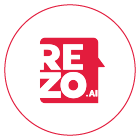
Collection Agencies & Their Role in Debt Recovery

Collection Agencies & Their Role in Debt Recovery


What is Collection Agency?
A collection agency is a specialized entity that helps businesses and financial institutions collect overdue debts from their customers or borrowers. These debt recovery agencies employ various strategies to pursue and obtain payments on behalf of their clients. They act as intermediaries between creditors and debtors, working diligently to facilitate the repayment process.
How does a Collection Agency Work?

When banks or financial institutions hire collection agencies, they entrust them with the responsibility of recovering outstanding debts. The collection agency typically receives a commission or fee based on the amount of debt collected. Here’s a step-by-step overview of how a collection agency operates:
- Assignment of Debt: The bank assigns the debt to a collection agency after internal efforts to collect the payment have been exhausted.
- Verification and Documentation: The collection agency verifies the debt details, including the outstanding amount, the debtor’s information, and any relevant documentation.
- Contacting the Debtor: The agency reaches out to the debtor through letters, emails, phone calls, or even in-person visits (where legally permitted).
- Negotiations and Payment Arrangements: The agency engages in negotiations with the debtor to establish a suitable payment plan or settlement agreement.
- Payment Collection: Once an agreement is reached, the collection agency collects payments from the debtor and disburses the funds to the bank after deducting their fees.
Why do Banks Hire Collection Agencies?
When a Borrower Pays
When a borrower pays their outstanding debt, banks benefit from hiring collection agencies in several ways:
- Expertise: Collection agencies specialize in debt recovery and possess in-depth knowledge of collection laws, regulations, and best practices. Their expertise ensures a higher likelihood of successful debt recovery.
- Time and Resources: Recovering debts can be a time-consuming process. By delegating the task to collection agencies, banks free up internal resources to focus on core business activities.
- Increased Recovery Rates: Collection agencies use proven strategies and tools to maximize debt recovery rates. Their professional approach often yields better results compared to in-house efforts.
When a Borrower Doesn’t Pay
In cases where a borrower refuses or is unable to pay, collection agencies offer additional benefits to banks:
- Litigation Support: Collection agencies may provide legal assistance or partner with law firms to initiate legal proceedings and enforce debt repayment.
- Skip Tracing: Collection agencies have access to advanced technology and databases that aid in locating debtors who have moved or changed their contact information.
- Preserve Business Relationships: Outsourcing debt collection process to an impartial third party can help maintain a positive relationship between the bank and the borrower, as collection agencies act as an intermediary and handle potentially difficult or contentious situations.
Read Now: Rezo’s Collection Product: A Better Way for Debt Recovery
What are Debt Collecting Agencies Allowed to Do?
Collection agencies must abide by regulations and laws governing debt collection practices. Here are some activities debt collectors are typically allowed to do:
- Contacting Debtors: Debt collectors can reach out to debtors by phone, mail, email, or in-person visits (within legal limits) to discuss the outstanding debt.
- Requesting Payment: Debt collectors have the authority to request payment for the outstanding debt, provide repayment options, and negotiate settlements on behalf of the bank.
- Reporting to Credit Bureaus: In case of non-payment, collection agencies may report the debt to credit bureaus, potentially impacting the debtor’s credit score.What are Debt Collectors Not Allowed to Do?
While debt collectors have certain permissible actions, it is important to be aware of the limitations imposed by consumer protection laws. Debt collectors are generally not allowed to:
- Harass or Threaten Debtors: Debt collectors must conduct themselves professionally and refrain from using abusive language, making threats, or engaging in harassment tactics.
- Misrepresenting Debt: Debt collectors cannot misrepresent the debt or falsely claim legal actions, wage garnishments, or other consequences if payment is not received.
- Discuss Debt with Unauthorized Parties: Debt collectors are prohibited from discussing the debtor’s outstanding debt with unauthorized individuals, such as family members, friends, or employers.
How Do Debt Collectors Collect a Debt?
Collection agencies employ a range of strategies to collect debts from borrowers. Some common approaches include:
- Direct Communication: Debt management services contact debtors directly to negotiate repayment plans or settlements.
- Payment Reminders: Regular reminders via phone, email, or mail encourage debtors to prioritize repayment.
- Skip Tracing: Utilizing specialized tools and databases, agencies track down debtors who have moved or changed contact details.
- Legal Action: When necessary, collection agencies assist in initiating legal proceedings, such as filing lawsuits or obtaining judgments, to enforce debt repayment.
Cons of Hiring a Collection Agency
While collection agencies provide valuable services, it’s important to consider potential drawbacks:
- Cost: Collection agencies charge fees or commissions based on the collected amounts, reducing the overall recovery for the bank.
- Customer Relationships: Outsourcing debt collection to an agency may impact the bank’s relationship with the borrower, as debt collection can be perceived negatively.
- Loss of Control: Banks hand over the responsibility of debt collection to an external party, potentially losing some control over the process.
Read Now: Redesigning Debt Collection: Rezo’s Approach to NBFCs and LSPs’ Challenges with New RBI Guidelines
How Can Banks Avoid Debt Collection Agencies?
While collection agencies have their advantages, proactive measures can help banks minimize the need for their services. Here are some strategies to avoid reaching the debt collection stage altogether:
- Streamline Credit Processes: Implement robust credit evaluation procedures to assess borrowers’ financial capabilities and reduce the likelihood of defaults.
- Effective Communication: Maintain open lines of communication with borrowers, providing transparency and clear expectations regarding repayment schedules.
- Flexible Repayment Options: Offer flexible repayment options, such as installment plans, to accommodate borrowers’ financial circumstances and prevent delinquency.
- Early Intervention: Proactively reach out to borrowers at the first signs of financial difficulty to offer assistance and explore alternative solutions.
By implementing these strategies, banks can optimize debt recovery rates and minimize the need for engaging collection agencies.
Collection agencies offer valuable services to banks and financial institutions, aiding in the recovery of outstanding debts. By leveraging their expertise and employing various strategies, collection agencies maximize recovery rates and preserve vital business relationships. However, it is important for banks to understand the permissible actions of debt management services and consider the potential drawbacks of outsourcing debt collection. By adopting proactive measures and effective communication strategies, banks can significantly reduce the need for collection agencies and maintain stronger financial relationships with their borrowers.
Boost Your Collection Efficiency with Rezo’s Smart Contact Strategy
Traditional methods often result in high costs, low engagement, and limited success rates. How can you overcome these obstacles and maximize your collection efficiency?

Enter Rezo’s revolutionary Smart Contact Strategy.
Rezo has harnessed the power of artificial intelligence (AI) to automate customer interactions and transform contact center operations. With Rezo’s Smart Contact Strategy, you can streamline your debt collection efforts and achieve remarkable results.
One of the key features of Rezo’s Smart Contact Strategy is its ability to build a personalized contact strategy for each debtor. By analyzing customer data and behavior patterns, Rezo creates a persona for the debtor and reaches out to them through their preferred channel, at their preferred time, and in their own language. This level of personalization maximizes engagement and increases the chances of successful debt recovery.
But that’s not all – Rezo’s Smart Contact Strategy goes beyond standard debt collection practices. It employs dynamic scripts that can be modified based on customer responses. This nudge-based approach ensures that the conversation adapts to each customer, maximizing the chances of conversion.
Moreover, Rezo’s Smart Contact Strategy breaks through language barriers with its multi-lingual bots. These AI agents are capable of conversing in multiple vernacular languages and dialects, ensuring effective communication with a wider range of debtors. By overcoming language obstacles, you can engage with debtors on a deeper level and significantly improve your collection efficiency.
With Rezo’s insightful dashboards, you can gain a unified view of your collection campaigns. These dashboards empower you with real-time intelligence and help you define success metrics by providing key performance indicators. As you leverage data from conversations, these dashboards continuously improve and exponentially enhance your collection efficiency.
Rezo’s Smart Contact Strategy has produced tangible results for numerous clients. Through load reduction, call containment, higher engagement, lead generation/validation/prioritization, and improved CSAT scores, Rezo empowers you to drive significant return on investment and improve your overall collection efficiency.
Don’t let outdated debt collection methods hold you back. Embrace the power of Rezo’s Smart Contact Strategy to boost your collection efficiency, revolutionize customer interactions, and achieve unparalleled results. Experience the future of debt collection today with Rezo.ai.
Frequently Asked Questions (FAQs)

Take the leap towards innovation with Rezo.ai
Get started now















